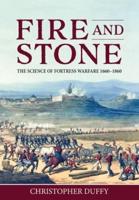Publisher's Synopsis
Anytime the use of US Armed Forces in support of civil authorizes is considered, government and military leaders, pundits, and citizens reflexively turn to the Posse Comitatus Act for guidance. Since 9/11, the US Armed Forces face an increased likelihood that they will be called on to participate in actions typically viewed as civil matters. Many have also called for an increased role for the US Armed Forces in responding to natural disasters. Though many constitutional provisions, laws, and legal ruling govern this question, in the minds of many, the Posse Comitatus Act has prominence. Most individuals think they know what the Posse Comitatus Act allows and disallows; most of them are wrong. Before 1878, the use of the US Army in support of and at times instead of civil law enforcement was rare; however, it was not considered unlawful. The Civil War and Reconstruction forced a reexamination of those precedents and the legal principles behind them. After the passage of the Posse Comitatus Act in 1878, the Armed Forces have been called on much less frequently to conduct civil law enforcement duties. When employed, their use has been controversial, and the constitutional basis for their use has been challenged in the media, in politics, and in the courts. In this monograph, Matt Matthews provides an insightful overview of the passage of the PCA during the Reconstruction era. He then reviews case studies in which the armed forces were called on to support civil authorities and examines how military leaders dealt with the provisions of the act. Finally, Mr. Matthews calls for a much-needed review of the act, now more than 125 years old. This monograph will be a useful read to military and civilian professionals also who will likely be called onto make critical decisions regarding the use of US Armed Forces in support of civil authorities.









